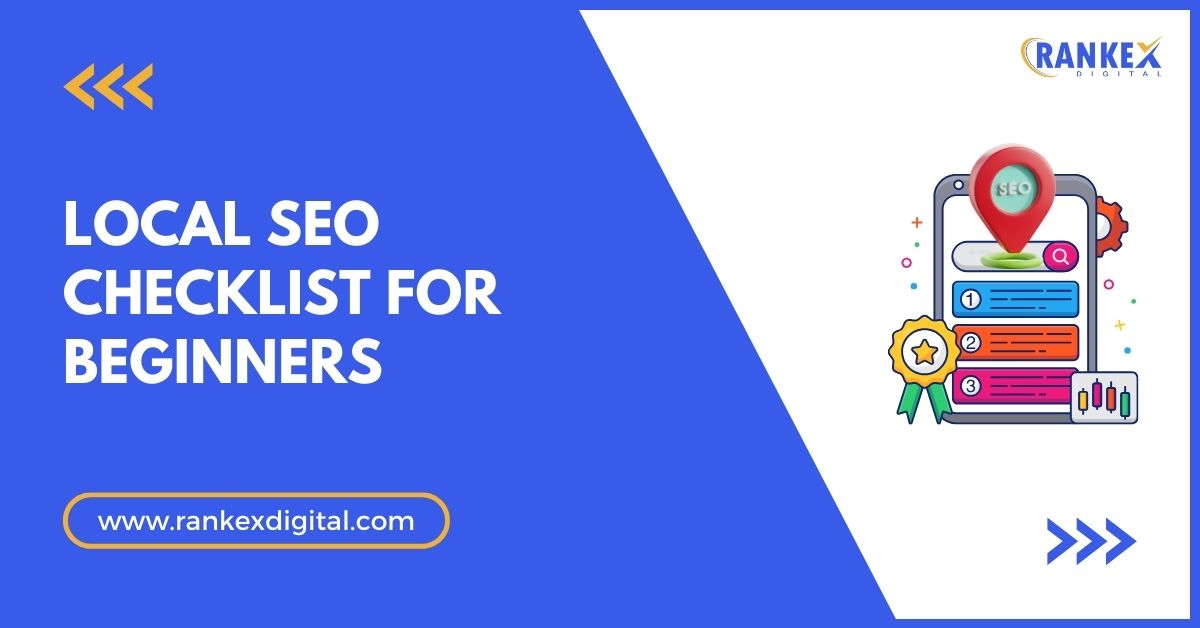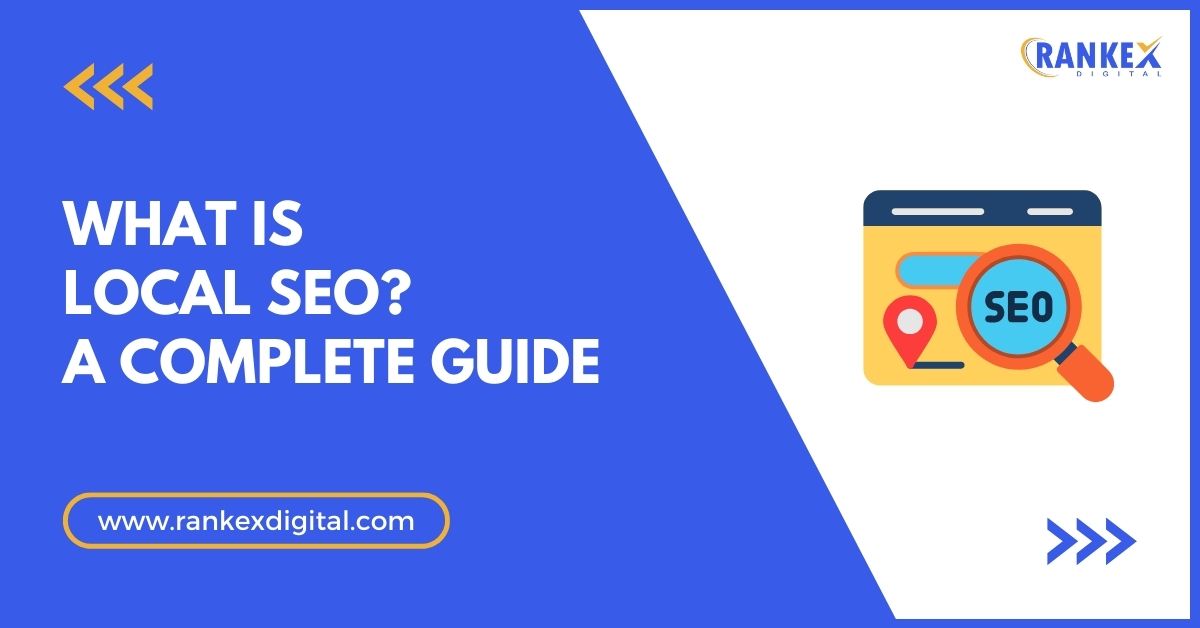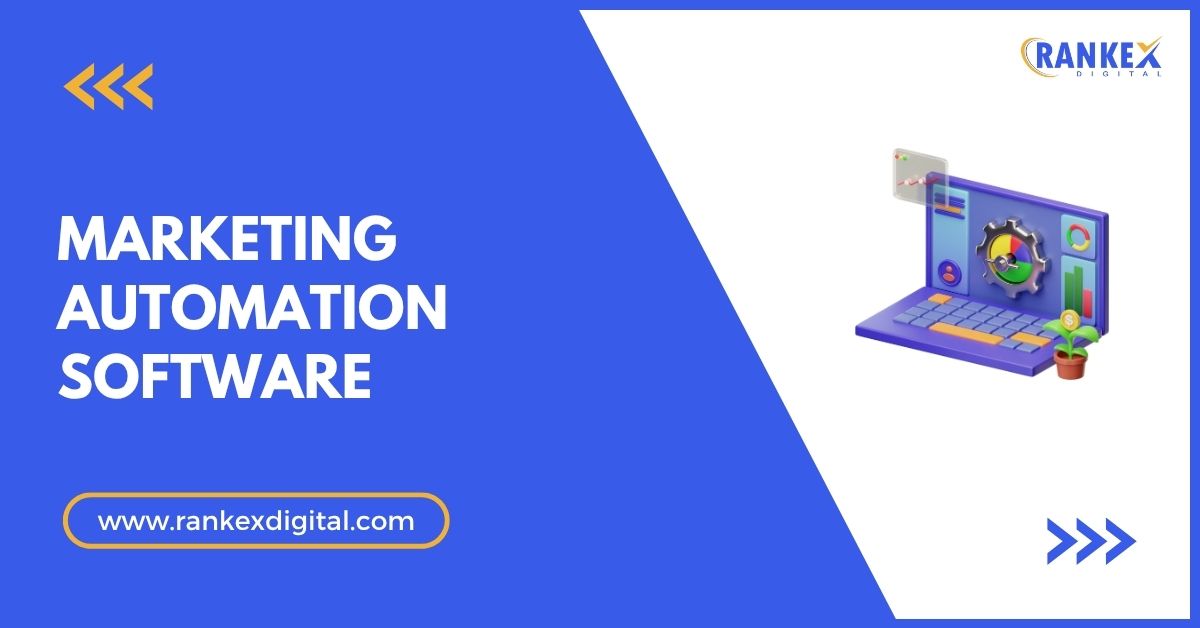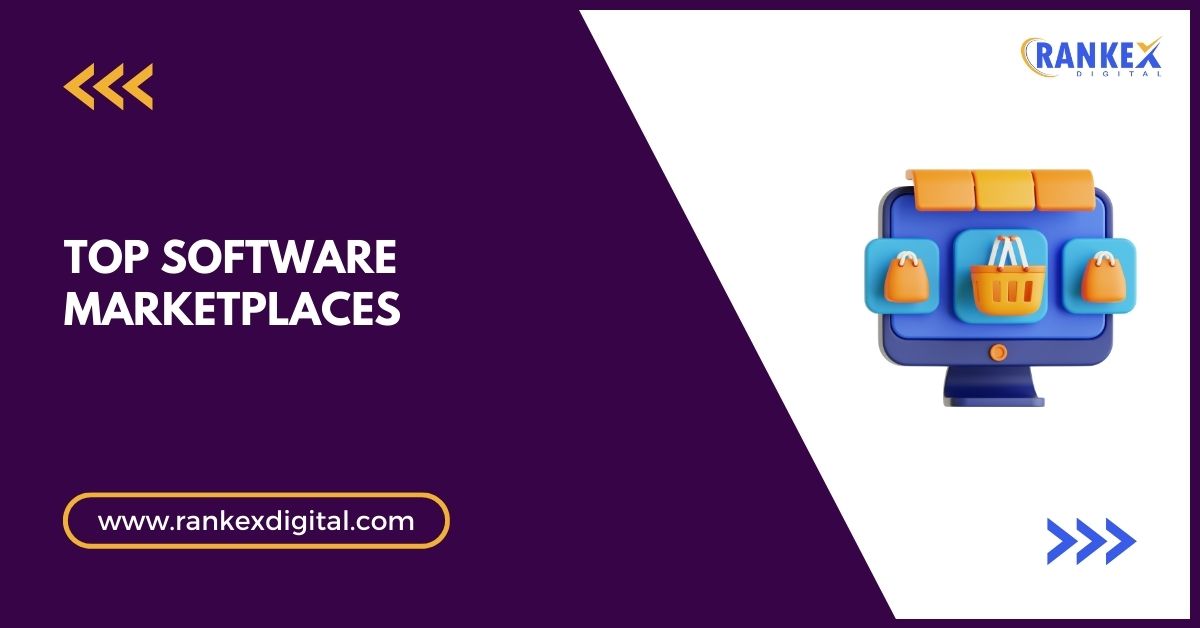Email marketing has consistently remained one of the most powerful tools for businesses looking to engage with their audience, drive conversions, and build lasting relationships.
In 2025, email marketing continues to evolve, offering more sophisticated tools and capabilities that enable companies to send personalized, data-driven emails at scale.
However, choosing the right platform can be overwhelming due to the variety of features, pricing plans, and levels of automation available.
This guide will help you navigate the 15 best email marketing platforms of 2025, providing insight into what each platform offers and how to choose the right one for your business needs.
In this blog
- 1 What is Email Marketing?
- 2 The Importance of Email Marketing
- 3 Why Choose the Right Email Marketing Platform?
- 4 What to Look for in an Email Marketing Platform?
- 5 List of Best Email Marketing Platforms in 2025
- 6 Comparison Table of Top Email Marketing Platforms
- 7 How to Choose the Right Email Marketing Platform for Your Business
- 8 Conclusion
- 9 Frequently Asked Questions
What is Email Marketing?
Email marketing is the practice of sending targeted email campaigns to a list of subscribers to promote products, services, or updates.
It is one of the oldest yet most effective forms of digital marketing, consistently providing higher returns on investment compared to other channels.
Marketers use email to connect with prospects, nurture leads, and retain existing customers through personalized messages.
The Importance of Email Marketing
Email marketing remains relevant and powerful in 2025 due to its ability to deliver personalized, direct communication to customers.
While newer forms of digital marketing, like social media and influencer campaigns, have gained prominence, email marketing still outperforms many strategies in terms of engagement and conversion.
Unlike paid ads, which can feel intrusive, emails offer a direct line to consumers, allowing businesses to cultivate relationships over time.
Why Choose the Right Email Marketing Platform?
Choosing the right email marketing platform is crucial for businesses of all sizes. Whether you’re a small business, a growing startup, or an established enterprise, the platform you choose can significantly impact the effectiveness of your campaigns.
Enhancing Customer Engagement
The right platform enables businesses to connect with customers on a personal level through segmentation and targeted messaging. Features like automation workflows, customer journeys, and personalization options allow marketers to tailor their communications based on customer behavior, preferences, and purchase history. This drives higher engagement rates, ensuring that emails are relevant and timely.
Automating Processes
With the advancements in automation, businesses no longer have to manually send emails for each campaign. The best platforms allow you to automate the entire process, from welcoming new subscribers to sending post-purchase follow-ups. Automation frees up time, enabling marketers to focus on strategic activities rather than repetitive tasks.
Boosting ROI
Email marketing remains one of the most cost-effective marketing strategies, with an average return on investment (ROI) of $42 for every $1 spent. By leveraging the right platform, businesses can boost their ROI by sending well-timed, targeted campaigns that increase conversions and customer retention. Platforms with built-in analytics also provide real-time data, allowing businesses to optimize their campaigns for better performance.
What to Look for in an Email Marketing Platform?
Selecting the right platform requires a clear understanding of your business needs and the features that align with your marketing goals. Below are the key factors to consider when choosing an email marketing platform in 2025:
Ease of Use
A user-friendly interface is essential, especially for businesses without a dedicated technical team. Look for platforms that offer drag-and-drop email builders, intuitive dashboards, and templates that make it easy to create professional-looking emails without needing to know HTML or coding.
Automation Features
Automation is crucial for scaling email marketing efforts. Features like autoresponders, drip campaigns, and triggered emails allow businesses to send personalized messages based on user actions, such as subscribing to a newsletter or abandoning a shopping cart. Advanced platforms offer multi-step workflows that can handle complex customer journeys.
Pricing
Pricing structures vary widely between platforms, with some offering free plans with limited features and others providing tiered pricing based on the number of subscribers or emails sent. It’s essential to choose a platform that fits your budget while offering the features you need. Consider whether the platform charges by the number of subscribers, emails sent, or based on additional features like automation and integrations.
Integrations
The ability to integrate with other tools, such as CRM systems, e-commerce platforms, and social media channels, is a critical factor. Seamless integrations ensure that your email marketing efforts are aligned with your overall marketing strategy, allowing you to synchronize customer data and track user behavior across multiple channels.
Deliverability
A platform with high email deliverability rates ensures that your emails land in the recipient’s inbox rather than being flagged as spam. Look for platforms with strong email authentication, reputation management, and deliverability monitoring to maximize your campaigns’ effectiveness.
Segmentation
Segmentation allows you to divide your audience into smaller groups based on demographics, behavior, or purchase history. This enables you to send more targeted and relevant emails, which improves open rates, click-through rates, and conversions.
Analytics & Reporting
Detailed analytics are crucial for measuring the success of your campaigns. Look for platforms that offer real-time reporting on open rates, click-through rates, bounce rates, and conversion metrics. Advanced analytics features may include heatmaps, A/B testing, and customer journey tracking, providing deeper insights into how subscribers interact with your emails.
List of Best Email Marketing Platforms in 2025
Omnisend
Omnisend is an all-in-one email marketing platform designed for e-commerce businesses. It combines email marketing with SMS, push notifications, and social media integration, making it a comprehensive tool for multi-channel marketing.
Omnisend is known for its automation workflows and segmentation tools, which allow businesses to send personalized campaigns based on customer behavior.
Its integrations with major e-commerce platforms like Shopify, WooCommerce, and BigCommerce make it easy to sync customer data and automate marketing.
Omnisend also provides detailed analytics and A/B testing to help optimize campaign performance.
Key Features
- Multi-channel marketing: email, SMS, push notifications, and social media
- Automation workflows for personalized marketing
- Segmentation tools based on customer behavior and purchase history
- A/B testing and real-time analytics
- Integration with e-commerce platforms like Shopify and WooCommerce
- Advanced reporting and performance tracking
Pros & Cons
| Pros | Cons |
|---|---|
| Ideal for multi-channel marketing (email, SMS, push, social) | Pricing can be higher for small businesses |
| Advanced automation tools for personalized campaigns | Limited design flexibility for email templates |
| Strong e-commerce integrations | Can be complex to set up for beginners |
| Excellent customer support | Not ideal for non-e-commerce businesses |
Mailchimp
Mailchimp is one of the leading email marketing platforms globally, offering an extensive range of features that cater to businesses of all sizes. Initially known for its easy-to-use interface and affordability, Mailchimp has grown into a complete marketing platform that goes beyond just email campaigns.
It offers tools for marketing automation, social media marketing, and even website building, making it a go-to solution for small and medium-sized businesses. One of Mailchimp’s strengths is its beginner-friendly design.
With a drag-and-drop editor and pre-built email templates, it enables users to create professional-looking campaigns without needing any coding knowledge.
Additionally, Mailchimp offers a range of advanced features like audience segmentation, A/B testing, and CRM integration. Its detailed analytics and reporting tools allow marketers to measure the effectiveness of their campaigns in real time, enabling them to optimize performance.
While Mailchimp is excellent for small businesses, its pricing can become expensive as your email list grows, which might be a drawback for larger companies or enterprises. Nonetheless, its comprehensive features and user-friendly experience make it a top choice for many.
Key Features
- Drag-and-drop email builder for creating campaigns with ease
- Pre-built automation workflows for tasks like welcome emails and cart recovery
- Advanced audience segmentation for personalized email marketing
- A/B testing to optimize subject lines and content for better performance
- CRM integration to manage customer relationships and streamline data
- Real-time analytics and reporting for tracking campaign performance
- Extensive template library for creating visually appealing, mobile-responsive emails
- Multi-channel marketing options, including social media integrations
Pros & Cons
| Pros | Cons |
|---|---|
| Free plan available with essential features | Pricing increases quickly with the growth of subscribers |
| User-friendly drag-and-drop interface, suitable for beginners | Limited advanced features in the free plan |
| Excellent automation workflows for scaling marketing efforts | Templates offer limited design flexibility compared to some rivals |
| Robust reporting and analytics features | Customer support options are limited for free plan users |
| Extensive integration with other tools like CRM and e-commerce platforms | Can be overwhelming for advanced marketers requiring customizations |
Constant Contact
Constant Contact is a versatile email marketing platform, especially well-suited for small businesses and those running online stores.
Known for its ease of use and focus on helping businesses grow, it offers a variety of features for managing email lists, creating professional emails, and integrating with e-commerce platforms.
It stands out for its specialized event marketing tools, allowing users to send invites, track RSVPs, and promote events effectively.
The platform also integrates with popular apps and services, including Shopify, WooCommerce, and social media, making it ideal for businesses looking to streamline their marketing across multiple channels.
Constant Contact provides real-time reporting and offers a simple drag-and-drop editor, making it easy to use for those with little technical experience.
Key Features
- Drag-and-drop email builder with customizable templates
- Real-time analytics and reporting
- Event management tools for RSVPs and promotions
- Integrations with e-commerce platforms like Shopify and WooCommerce
- Social media marketing features for Facebook, Instagram, and more
- List segmentation and automation tools
Pros & Cons
| Pros | Cons |
|---|---|
| Great for e-commerce and event marketing | Limited automation compared to competitors |
| Intuitive interface, easy to use | Higher price point, especially for advanced features |
| Strong customer support with phone, chat, and email | Template design options can be somewhat restrictive |
| Effective list management and segmentation tools | Lacks the depth of automation found in some platforms |
GetResponse
GetResponse is a feature-packed email marketing platform that excels in automation and lead generation. Designed for businesses looking to scale their email marketing, it offers tools such as landing page builders, conversion funnels, and even webinar hosting.
GetResponse’s automation workflows are highly customizable, making it a great option for businesses that want to engage in advanced marketing techniques.
Its combination of email marketing and lead generation tools allows businesses to streamline their entire funnel, from attracting leads to converting them.
With advanced segmentation, A/B testing, and responsive design options, GetResponse is a versatile platform that can cater to various business needs, particularly for those focused on growth.
Key Features
- Advanced marketing automation and workflows
- Built-in landing page creator and webinar hosting
- Conversion funnels for lead generation
- A/B testing and analytics for campaign optimization
- Responsive email design with drag-and-drop editor
- Advanced segmentation and list management
Pros & Cons
| Pros | Cons |
|---|---|
| Comprehensive marketing and automation tools | Higher learning curve for beginners |
| Great for lead generation with conversion funnels and webinars | Can become expensive for advanced features and larger lists |
| Strong A/B testing and analytics features | Basic templates lack design flexibility |
| Built-in landing page and webinar tools | Customer support can be slow for certain tiers |
SendinBlue
SendinBlue is a multi-channel marketing platform that offers email, SMS, and transactional email capabilities. Known for its affordability and scalability, it’s an excellent option for businesses that need an all-in-one platform.
With tools for automation, segmentation, and real-time tracking, SendinBlue enables businesses to run highly personalized email and SMS campaigns.
The platform’s user-friendly interface and advanced features make it accessible for beginners while still offering powerful tools for seasoned marketers.
It’s also GDPR compliant, making it an excellent option for businesses in Europe that need to ensure data privacy.
Key Features
- Multi-channel marketing: email, SMS, and transactional emails
- Built-in CRM and marketing automation
- Advanced segmentation and personalization options
- Real-time analytics and reporting
- A/B testing and deliverability monitoring
- GDPR compliance tools for data privacy
Pros & Cons
| Pros | Cons |
|---|---|
| Affordable pricing for small businesses | Design templates are somewhat limited |
| SMS marketing integration in addition to email | Lacks some of the depth of automation found in premium tools |
| User-friendly interface, great for beginners | Limited integrations with third-party apps compared to competitors |
| GDPR compliance and data privacy features | No phone support; customer service is mainly email-based |
HubSpot
HubSpot offers a complete marketing suite, including a robust email marketing platform integrated with its free CRM. HubSpot is known for its inbound marketing approach, providing users with advanced automation, personalized email campaigns, and seamless integration with its broader marketing tools.
This makes it ideal for businesses looking to align their email marketing with other digital marketing strategies.
What sets HubSpot apart is its customer journey mapping and lead nurturing features, allowing businesses to fully personalize their emails based on a subscriber’s interactions.
While the free plan includes basic email tools, HubSpot’s more advanced features come with a premium price, making it more suitable for medium to large enterprises.
Key Features
- Integrated with HubSpot CRM for seamless data management
- Advanced marketing automation and workflows
- Customer journey mapping and lead scoring
- Detailed analytics and reporting on engagement and conversions
- A/B testing and personalization tools
- Free plan available with limited features
Pros & Cons
| Pros | Cons |
|---|---|
| Excellent for inbound marketing and lead nurturing | Higher pricing for advanced features |
| Integrated with free HubSpot CRM | Can be overkill for small businesses with basic needs |
| Advanced personalization and customer journey tools | Learning curve for beginners |
| Free plan available for smaller businesses | Full features require higher-tier pricing plans |
ActiveCampaign
ActiveCampaign is a powerful email marketing platform known for its advanced automation and segmentation capabilities. It’s designed for businesses that want to go beyond basic email marketing and create complex automation workflows based on customer behavior and preferences.
With features like conditional content and predictive sending, ActiveCampaign offers a high level of customization for personalized marketing.
In addition to email marketing, ActiveCampaign also offers built-in CRM, SMS marketing, and lead scoring, making it an all-in-one solution for businesses focused on building and maintaining customer relationships. It’s an ideal platform for companies looking for advanced automation and CRM tools.
Key Features
- Advanced automation with behavior-based triggers
- Built-in CRM for contact management and lead scoring
- Predictive sending and conditional content
- Multi-channel marketing: email, SMS, and site messaging
- A/B testing and reporting tools
- Extensive list segmentation for personalized marketing
Pros & Cons
| Pros | Cons |
|---|---|
| Best-in-class automation tools for personalized campaigns | Can be complex to set up for beginners |
| Built-in CRM and lead scoring for sales and marketing alignment | Higher cost compared to basic email marketing platforms |
| Supports multi-channel marketing (email, SMS, web) | Learning curve for understanding all advanced features |
| Excellent customer support and resources | Pricing increases with advanced features and larger lists |
AWeber
AWeber is one of the oldest and most reliable email marketing platforms, known for its simplicity and ease of use. It offers a range of features, including a drag-and-drop email builder, list segmentation, and automation tools.
AWeber is particularly favored by small businesses and entrepreneurs due to its affordable pricing and focus on delivering essential email marketing services without overwhelming users with advanced features.
Though not as feature-rich as some competitors, AWeber excels at providing the tools necessary for running successful email campaigns, such as autoresponders and list management.
It’s a great platform for those just starting with email marketing or those who want a straightforward experience.
Key Features
- Drag-and-drop email builder with mobile-responsive templates
- List segmentation and autoresponders
- Basic automation workflows for email sequences
- A/B testing and detailed analytics
- Subscriber list management and import tools
- Integrations with WordPress, Shopify, and other apps
Pros & Cons
| Pros | Cons |
|---|---|
| Easy to use, ideal for beginners | Lacks advanced automation compared to other platforms |
| Affordable pricing for small businesses | Template design options are somewhat limited |
| Strong deliverability rates | Limited features for advanced marketers |
| 24/7 customer support available | Pricing increases quickly with larger subscriber lists |
Campaign Monitor
Campaign Monitor is a visually-focused email marketing platform known for its high-quality email templates and drag-and-drop editor. It’s ideal for businesses and agencies that prioritize beautiful email design without sacrificing functionality.
Campaign Monitor’s email builder allows for easy customization, ensuring that emails are mobile-responsive and visually engaging.
Beyond its design capabilities, Campaign Monitor offers automation tools, list segmentation, and analytics, making it a well-rounded platform for businesses of all sizes.
Its pricing, however, may be a bit higher than other competitors, especially for those looking for advanced automation features.
Key Features
- Drag-and-drop email builder with professional-grade templates
- Advanced segmentation and list management
- Automation tools for personalized email journeys
- Real-time analytics and performance tracking
- A/B testing and campaign optimization
- Integrations with CRM, e-commerce platforms, and more
Pros & Cons
| Pros | Cons |
|---|---|
| High-quality, visually stunning email templates | Pricing is higher compared to other platforms with similar features |
| Excellent drag-and-drop editor | Limited automation options in lower-tier plans |
| Strong list segmentation and personalization tools | Learning curve for advanced features |
| Reliable customer support | Not ideal for businesses needing advanced automation |
ConvertKit
ConvertKit is designed primarily for creators—bloggers, YouTubers, and podcasters—who want to grow their audience and monetize their content through email marketing. With a focus on simplicity, ConvertKit offers easy-to-use tools for creating automated email funnels and segmenting subscribers.
Its features are more tailored to creators and small businesses rather than large corporations.
ConvertKit’s automation is straightforward, making it easy to build sequences that nurture leads or promote products.
Although it lacks the complex automation features of some platforms, ConvertKit shines in simplicity and user-friendliness for those focused on content marketing.
Key Features
- Email sequences and automation for content creators
- Subscriber tagging and segmentation for personalized marketing
- Landing page builder for lead generation
- Simple drag-and-drop editor for email creation
- Integrations with WordPress, Shopify, and more
- Focused on building email funnels for monetization
Pros & Cons
| Pros | Cons |
|---|---|
| Ideal for bloggers, creators, and small businesses | Lacks some advanced automation features found in other platforms |
| Easy-to-use interface with automation-focused tools | Higher pricing compared to some competitors for similar features |
| Great for building email funnels | Limited design flexibility for email templates |
| Supports lead generation with landing page tools | Not suitable for large businesses or complex campaigns |
Moosend
Moosend is a budget-friendly email marketing platform with powerful automation features. It offers an easy-to-use email builder, pre-built templates, and customizable workflows to automate marketing campaigns.
Moosend is suitable for small to medium-sized businesses that want an affordable yet effective email marketing solution.
Moosend’s simplicity and affordability make it accessible for beginners while still offering advanced features like segmentation, A/B testing, and real-time analytics.
This email marketing platform also provides integrations with e-commerce tools, making it a great choice for online businesses.
Key Features
- Drag-and-drop email builder with customizable templates
- Automation workflows for personalized campaigns
- Real-time reporting and analytics
- Advanced segmentation and list management tools
- A/B testing and deliverability tracking
- Integrations with e-commerce platforms like Shopify
Pros & Cons
| Pros | Cons |
|---|---|
| Affordable pricing for small businesses | Limited customer support options |
| Easy-to-use interface with drag-and-drop editor | Fewer third-party integrations compared to competitors |
| Advanced automation and segmentation features | Limited template design options |
| Excellent deliverability rates | Not ideal for larger businesses needing advanced features |
MailerLite
MailerLite is a cost-effective email marketing platform that offers essential features with a user-friendly interface. It’s designed for small businesses, startups, and non-profits that need an affordable solution for email marketing.
MailerLite includes a drag-and-drop editor, automation workflows, and landing page builders, making it a versatile option for beginners.
Despite its lower price, MailerLite offers advanced tools such as A/B testing, analytics, and integration with e-commerce platforms.
It’s ideal for businesses with limited budgets looking for basic email marketing tools without compromising on performance.
Key Features
- Drag-and-drop editor with customizable templates
- Automation workflows for email campaigns
- Landing page and popup builders
- A/B testing and real-time analytics
- Integration with popular e-commerce platforms
- Affordable pricing with a free plan available
Pros & Cons
| Pros | Cons |
|---|---|
| Affordable pricing, especially for small businesses | Limited advanced automation features |
| Easy-to-use interface with essential tools | Template design options can be somewhat basic |
| Free plan available with generous limits | Customer support is limited to email for lower-tier plans |
| Good deliverability rates for the price | Not ideal for larger companies with complex needs |
Drip
Drip is an e-commerce-focused email marketing platform designed to help online businesses increase sales and customer engagement through personalized campaigns.
It offers advanced automation workflows, segmentation tools, and CRM features, making it a powerful solution for scaling online stores.
Drip’s deep integration with e-commerce platforms like Shopify, WooCommerce, and Magento makes it easy to sync customer data for targeted marketing. For Shopify dropshipping businesses, this means you can create highly personalized email campaigns based on customer behavior, abandoned carts, or purchase history, helping you build stronger relationships and drive more repeat sales.
Drip’s automation workflows can be customized to send personalized messages based on customer behavior, making it ideal for businesses that want to create highly targeted campaigns.
However, its pricing may be higher for smaller businesses compared to other platforms.
Key Features
- E-commerce integrations with Shopify, WooCommerce, and more
- Advanced automation workflows for personalized campaigns
- Segmentation tools based on customer behavior and purchase history
- Built-in CRM for managing customer data
- A/B testing and detailed reporting
- SMS marketing integration for multi-channel campaigns
Pros & Cons
| Pros | Cons |
|---|---|
| Ideal for e-commerce businesses | Higher pricing compared to some competitors |
| Advanced automation and segmentation tools | Learning curve for beginners |
| Deep integration with e-commerce platforms | Limited template design options |
| Multi-channel marketing with SMS and email | Not suitable for businesses outside e-commerce |
Benchmark Email
Benchmark Email is a simple yet effective platform that focuses on providing a straightforward email marketing experience. It offers a drag-and-drop editor, A/B testing, and list segmentation tools to create professional emails quickly.
Benchmark Email is ideal for small to medium-sized businesses looking for an easy-to-use platform with essential features.
While it doesn’t offer the advanced automation tools of some competitors, Benchmark Email provides everything needed to run successful email marketing campaigns.
Its pricing is also competitive, making it a good choice for businesses with a limited budget.
Key Features
- Drag-and-drop editor with mobile-responsive templates
- A/B testing for email optimization
- List segmentation and management tools
- Real-time reporting and analytics
- Automation workflows for basic email sequences
- Integration with CRM and e-commerce platforms
Pros & Cons
| Pros | Cons |
|---|---|
| Simple and user-friendly interface | Lacks advanced automation features found in other platforms |
| Affordable pricing for small businesses | Limited template design options |
| Good deliverability rates | Fewer integrations compared to competitors |
| 24/7 customer support available | Not ideal for larger businesses with complex marketing needs |
Pabbly Email Marketing
Pabbly Email Marketing is a cost-effective platform known for its unlimited email sending capabilities. It offers basic email marketing tools, including list management, automation, and responsive templates.
Pabbly’s standout feature is its ability to send unlimited emails, which makes it a great option for businesses with large email lists.
While it lacks some of the advanced features found in more expensive platforms, Pabbly Email Marketing provides essential tools at an affordable price.
It’s particularly well-suited for businesses that need to send a high volume of emails without paying exorbitant fees.
Key Features
- Unlimited email sending capabilities
- Basic automation workflows for email sequences
- Drag-and-drop email editor with responsive templates
- List management and segmentation tools
- Real-time analytics and reporting
- Affordable pricing for high-volume senders
Pros & Cons
| Pros | Cons |
|---|---|
| Unlimited email sending for all plans | Lacks advanced automation and segmentation features |
| Affordable pricing, especially for large lists | Limited template customization options |
| Simple and easy-to-use interface | Fewer integrations compared to other platforms |
| Strong deliverability rates | Not ideal for businesses need advanced marketing tools |
Email Blaster UK
Email Blaster UK is a versatile email marketing tool designed to help businesses of all sizes create, send, and manage impactful email campaigns. Known for its user-friendly interface and robust features, it empowers marketers to connect effectively with their target audience.
One of Email Blaster’s key strengths is its drag-and-drop editor, which allows users to design professional-looking emails without any coding expertise. The platform also offers customizable templates to create visually appealing and mobile-responsive campaigns effortlessly.
Email Blaster supports advanced features like contact list segmentation, automated email scheduling, and campaign tracking. Its detailed analytics provide valuable insights into open rates, click-through rates, and overall campaign performance, enabling marketers to make data-driven decisions for optimization.
Whether you’re a startup or an established business, Email Blaster offers the flexibility and tools to scale your email marketing efforts seamlessly.
Key Features:
- Drag-and-Drop Email Builder: Design custom emails quickly without coding.
- Customizable Templates: Create visually engaging and responsive campaigns.
- List Segmentation: Target specific customer groups for personalized messaging.
- Automation Tools: Schedule and send emails automatically based on user actions.
- Campaign Analytics: Gain insights to improve email performance and engagement.
- Data Import: Easily upload and manage contact lists.
Pros & Cons:
| Pros | Cons |
|---|---|
| Intuitive drag-and-drop interface | Limited advanced automation features |
| Customizable email templates | Fewer integrations compared to competitors |
| Strong analytics and reporting tools | No free plan for long-term use |
| Excellent customer support | Design options could be more extensive |
Comparison Table of Top Email Marketing Platforms
| Platform | Best For | Pricing | Automation | Integrations |
| Omnisend | E-commerce, online retailers | Premium | Yes |
Shopify, BigCommerce
|
| Mailchimp | Small businesses, eCommerce, bloggers | Freemium | Yes | CRM, eCommerce |
| HubSpot | Medium to large businesses | Premium | Yes |
Salesforce, WordPress
|
| Constant Contact | Small businesses, nonprofits | Mid-range | Yes |
Shopify, WooCommerce
|
| ActiveCampaign | B2B, eCommerce, advanced marketers | Premium | Yes | Salesforce, Zapier |
| Sendinblue | Small to medium businesses, eCommerce | Freemium | Yes |
WooCommerce, WordPress
|
| AWeber | Creators, bloggers, small businesses | Freemium | Limited |
PayPal, WordPress
|
| GetResponse | B2B, eCommerce, content creators | Premium | Yes |
Shopify, Salesforce
|
| Campaign Monitor | E-commerce, small to medium businesses | Mid-range | Yes | Zapier, Salesforce |
| ConvertKit | Bloggers, creators, freelancers | Premium | Yes |
WordPress, Shopify
|
| Moosend | Small to medium businesses, eCommerce | Budget-friendly | Yes |
Shopify, WordPress
|
| MailerLite | Startups, small businesses, nonprofits | Freemium | Yes |
Shopify, WooCommerce
|
| Drip | E-commerce, scaling businesses | Premium | Yes |
Shopify, WooCommerce
|
| Benchmark Email | Small to medium-sized businesses | Mid-range | Yes | CRM, Shopify |
| Pabbly | Businesses with large email lists | Budget-friendly | Limited |
WordPress, PayPal
|
| Email Blaster UK | B2B, eCommerce, content creators | Freemium | Yes |
WordPress, PayPal
|
How to Choose the Right Email Marketing Platform for Your Business
Assessing Your Business Needs
Before selecting an email marketing platform, it’s crucial to identify your business goals and marketing needs. For example, if you’re a content creator, platforms like ConvertKit might be better suited for building email funnels and engaging subscribers.
On the other hand, eCommerce businesses might benefit more from platforms like Drip or Omnisend, which offer deep eCommerce integrations and automation workflows for personalized campaigns.
- Consider your marketing strategy: Are you focusing on lead nurturing, e-commerce sales, or content engagement? Your goals should align with the platform’s strengths.
- Assess technical requirements: Do you need advanced segmentation, A/B testing, or CRM integration?
- Look at ease of use: Do you prefer a drag-and-drop email builder, or are you comfortable with more advanced setups?
Matching Platform Features with Business Size and Goals
Your business size plays a key role in selecting the right platform. Small businesses and startups might prioritize ease of use and affordability, making platforms like MailerLite or Moosend attractive options.
Larger businesses or corporations with a need for extensive CRM integration and automation workflows may prefer HubSpot or ActiveCampaign.
- Small businesses and startups: Need budget-friendly, easy-to-use platforms.
- Medium-sized businesses: Might prioritize advanced automation and integrations.
- Large enterprises: Require scalable solutions with robust CRM and analytics capabilities.
Budget Considerations
Budget is a critical factor in selecting a platform. Free or budget-friendly platforms like MailerLite and Moosend offer basic features, while premium platforms like HubSpot and ActiveCampaign provide advanced marketing automation but at a higher cost.
- Freemium options: If you’re on a tight budget, start with free plans and scale up as your business grows.
- Premium options: For businesses that need advanced features and larger-scale operations, premium options may offer better long-term value.
Future Scalability
As your business grows, so should your email marketing platform. Choosing a platform that can scale with your business is essential to avoid migration headaches later on. Look for platforms that allow you to upgrade seamlessly or offer more advanced tools like segmentation, A/B testing, and automation as your needs evolve.
- Ensure platform flexibility: Check if the platform can handle larger subscriber lists, complex automations, and multi-channel marketing as your business grows.
- Evaluate upgrade options: Are there higher-tier plans with better features that can accommodate future growth?
Conclusion
Selecting the right email marketing platform can significantly impact your marketing efforts. Whether you are a small business, an eCommerce store, or a content creator, matching the platform’s features to your business needs is essential for maximizing engagement, nurturing leads, and driving sales.
Choosing an email marketing platform is not just about the features it offers—it’s about finding the right tool that fits your business type, goals, and budget. Having the right platform can streamline your marketing efforts, automate customer journeys, and enhance the overall customer experience.
Final Recommendations
- For small businesses on a budget, platforms like MailerLite or Moosend offer great value with essential features.
- E-commerce businesses should consider Drip or Omnisend for their deep integrations with popular eCommerce tools.
- Content creators and bloggers may find ConvertKit perfect for building email funnels and managing subscriber lists.
- Large enterprises or growing businesses needing advanced automation and CRM integration should explore HubSpot or ActiveCampaign.
Frequently Asked Questions
1. Which email marketing platform is best for small businesses?
MailerLite, Moosend, and Mailchimp are ideal for small businesses due to their affordability, ease of use, and essential email marketing features that help drive engagement and growth.
2. How do I improve my email deliverability rates?
To improve deliverability rates, ensure you’re sending to engaged subscribers, clean your email list regularly to remove inactive contacts, use double opt-in forms, and authenticate your domain with SPF and DKIM.
3. Can I integrate email marketing platforms with my CRM?
Yes, most email marketing platforms like HubSpot, ActiveCampaign, and Sendinblue offer CRM integrations. This allows you to manage customer data and create personalized email campaigns based on customer behavior and interactions.
4. What’s the best free email marketing platform?
MailerLite and Mailchimp offer some of the best free email marketing platforms. They provide essential features such as automation and A/B testing, although they have limitations on the number of subscribers and emails sent per month.
5. Is automation necessary for email marketing?
Automation is not mandatory but highly recommended. It helps streamline repetitive tasks, such as sending welcome emails, nurturing leads, or following up with customers based on their behavior. Automated workflows can save time and improve efficiency, ultimately leading to better engagement and conversions.









